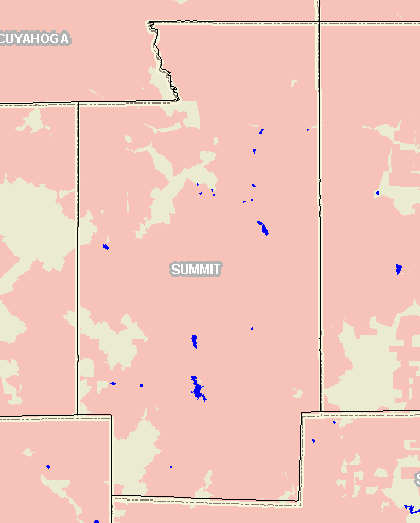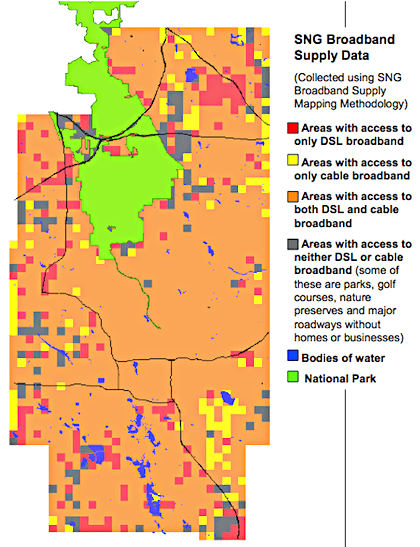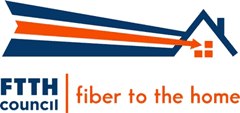While western New York was dealing with a rare bout of tornadoes, another storm began brewing online when AT&T customers discovered their access to a website devoted to the posting of images, 4chan, had been blocked.
The 4chan site has become notorious over the past year for its “anything goes” policies about content, particularly in its “random board” /b/. The site has generated a number of controversies, including staged pranks, swarming other websites, and unfortunately, occasional malicious activity by a minority of its users. Since the site permits anonymous posting, and has traditionally been more “self-regulating” than moderated, it’s a polar opposite of most corporate-run online communities.
When 4chan enthusiasts discovered their site was being blocked by AT&T, it represented the online equivalent of of course, you know this means war. AT&T was blasted in the blogosphere, called out by some tech-minded online culture websites, and made a virtual pawn in the Net Neutrality debate. A few angry 4chan enthusiasts even set up a “rioting/’war’/protest” site to launch counteraction against AT&T.
AT&T eventually admitted it was blocking the site for “security reasons” and issued two early statements:
AT&T has confirmed that they are “currently blocking portions of the internet site 4chan.org”, but states that they are “following the practices of their policy department.”
AT&T went on to say that they did contact (or, at least, attempted to contact, they wouldn’t clarify) the owners of 4chan. They say that they have specific reasons why they blocked these parts of the site, but they would not disclose them to CentralGadget.com. AT&T states that they have requested specific things and changes from 4chan’s owners, and that 4chan has not complied.
Regardless, without a clear explanation of specific rationale for blocking 4chan… both 4chan and CentralGadget.com encourage you to continue calling AT&T technical support, and filing your complaints there (escalate as high as possible, we have heard reports that Tier 1 support agents are being told to incorrectly state that AT&T doesn’t block any web site).
Beginning Friday, an AT&T customer was impacted by a denial-of-service attack stemming from IP addresses connected to img.4chan.org. To prevent this attack from disrupting service for the impacted AT&T customer, and to prevent the attack from spreading to impact our other customers, AT&T temporarily blocked access to the IP addresses in question for our customers. This action was in no way related to the content at img.4chan.org; our focus was on protecting our customers from malicious traffic.
Overnight Sunday, after we determined the denial-of-service threat no longer existed, AT&T removed the block on the IP addresses in question. We will continue to monitor for denial-of-service activity and any malicious traffic to protect our customers.
Since the end of the weekend, access to 4chan has been restored by AT&T, but the site is performing slowly as it presumably gets attention from a large number of visitors who learned of the site from the controversy, but never heard of it before Sunday.
AT&T’s clumsy explanation fired up a new chapter in the Net Neutrality debate, with various groups and 4chan enthusiasts, and even the DailyKos website, calling this an example of a violation of Net Neutrality — providers denying equal access to all website traffic regardless of its source.
Unfortunately, this is much more an instance of jumping the gun. Indeed, there is credible evidence 4chan, in addition to its free-wheeling atmosphere, also attracts quite a few malicious attacks, presumably from disgruntled members of the site. “Denial of service attacks” which throw limitless requests at a web server to slow it down until it essentially crashes under the jamming traffic load, are not uncommon on 4chan.
AT&T’s technical team claims it placed blocks on the impacted IP address(es) to keep the traffic from impacting their own network, and the issue blew up only when AT&T’s non technical customer support staff did a poor job of explaining what was going on to customers. There are also an open question whether AT&T needed to block -all- traffic on its network to 4chan, or whether blocking just the offending portion would have been sufficient.
Assuming the facts are in AT&T’s favor, and other ISPs have confirmed the attack as being authentic, this is less a case of Net Neutrality abuse, but rather standard procedure at most web hosting companies and service providers to contend with denial of service attacks and other malicious activity. The hosting providers that provide service to Stop the Cap! engage in the same practices. One of the hosting companies we use once shut off access to a group of websites it hosted to deal with an attack on just one website. Once the targeted site was isolated and traffic blocks placed, service resumed for everyone else. When the attacks were stopped or blocked by other providers down the line, service for the targeted site resumed as well.
But AT&T is not blameless. A major national ISP like AT&T should have had a rapid and clear response ready for inquiring customers about the 4chan matter. It was the absence of information initially, and the poorly phrased statements later that created the feeding frenzy of online speculation.
There is a thin line between “network management” policies that deal with malicious traffic and its impact on customers on one side and disingenuously labeling high bandwidth uses of its network (peer to peer, etc.) as requiring “network management” of its own (throttles, etc.). Historically network technicians have always been given latitude to protect their employer’s network from purposely malicious traffic like “botnets,” “spam servers,” and “denial of service attacks.” They should continue to have that latitude until such time they are shown to be abusing it.
4chan’s own internal policies, and their unwillingness to control some user excesses, also make it very difficult to rush to their defense, particularly when the site owner acknowledges many of those excesses.
There are many legitimate battles to be fought for Net Neutrality. An ISP dealing with a denial of service attack, barring any new evidence that credibly challenges AT&T’s response, should not be one of them.


 Subscribe
Subscribe







